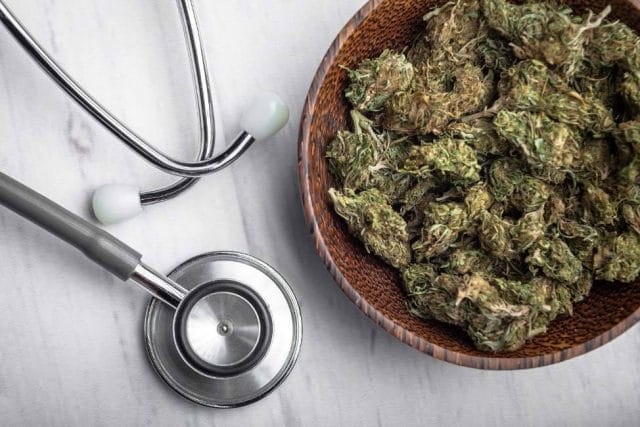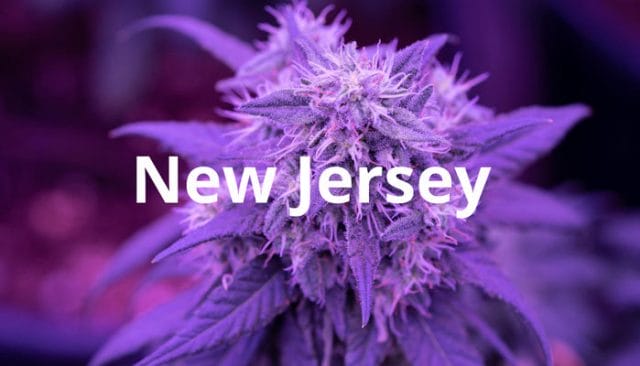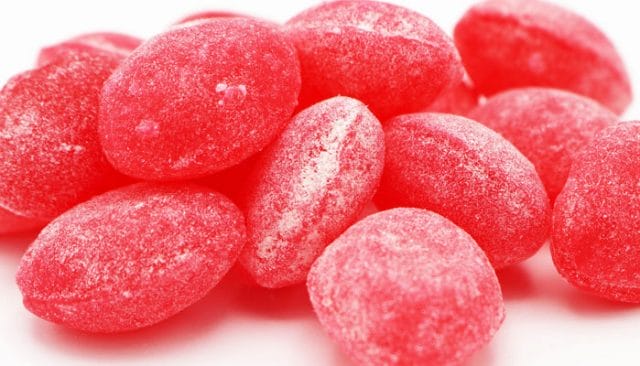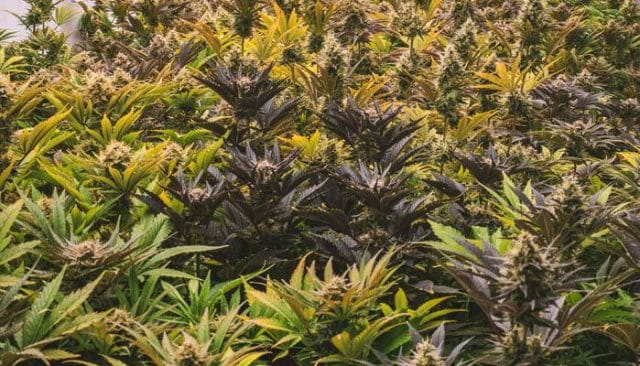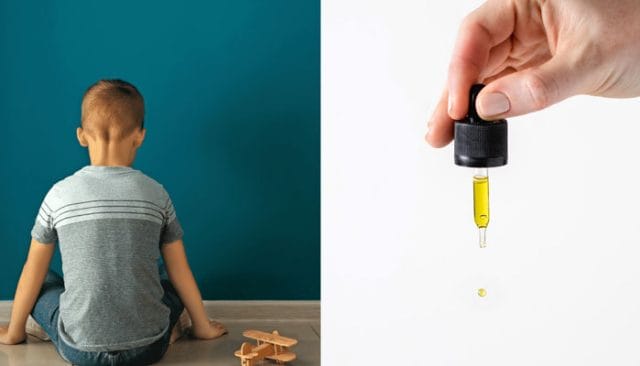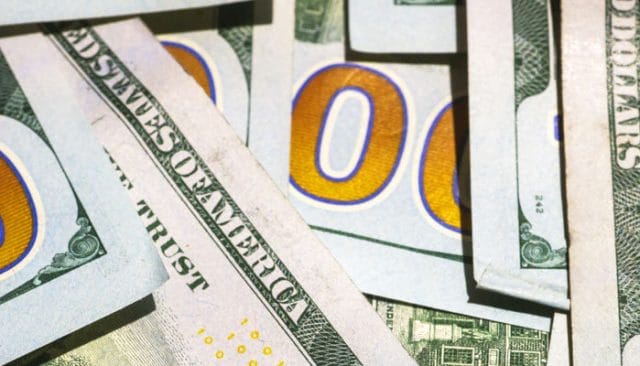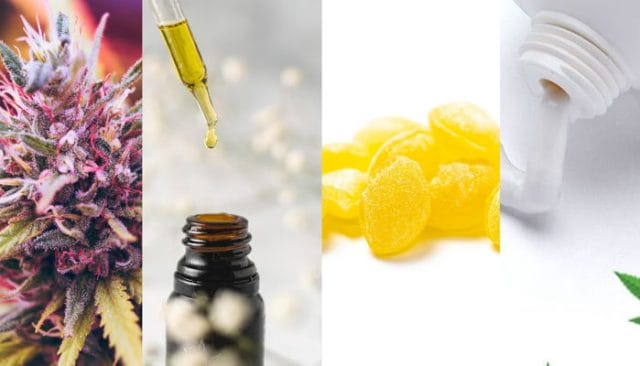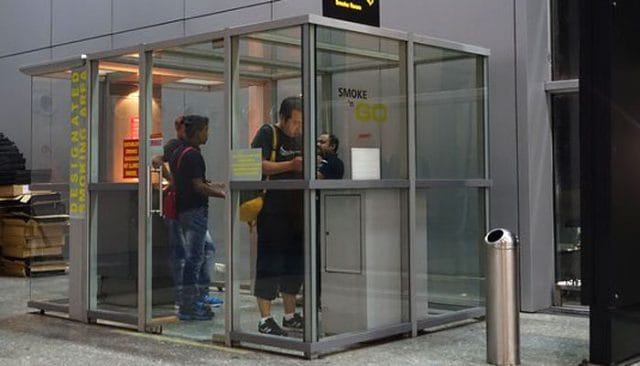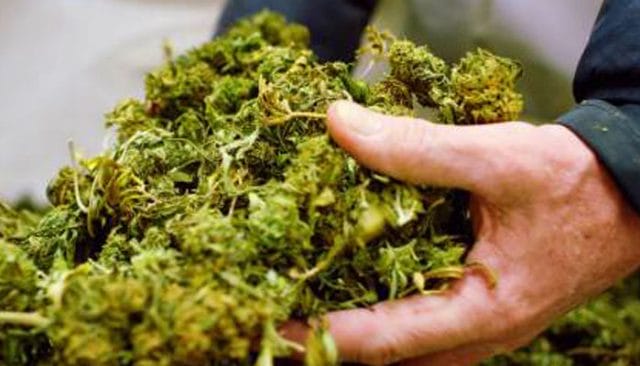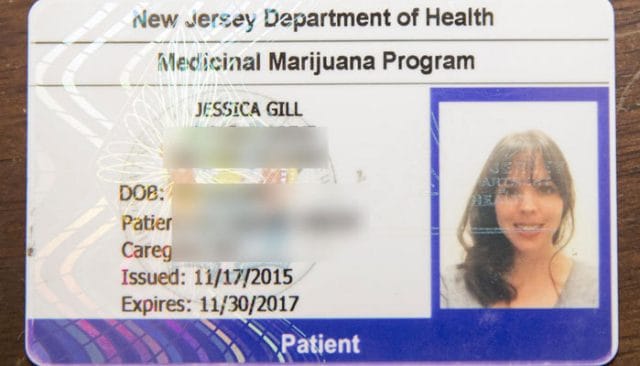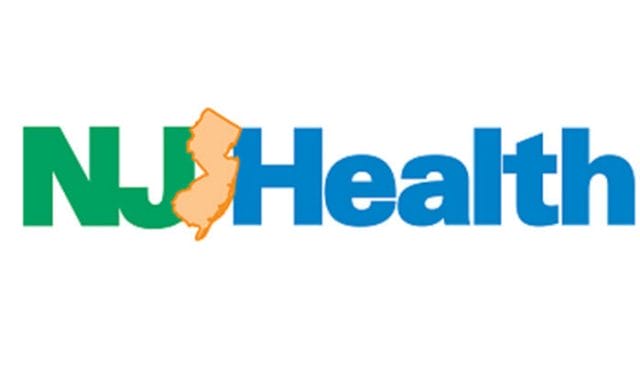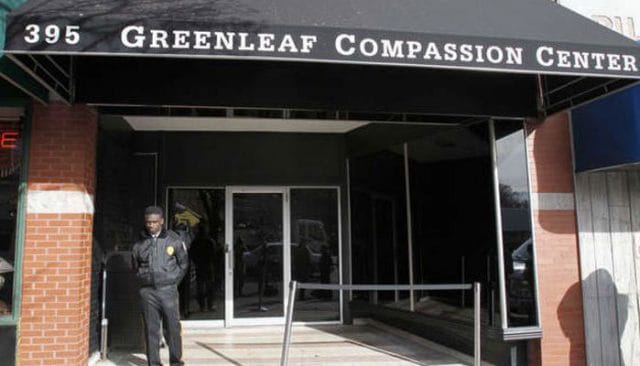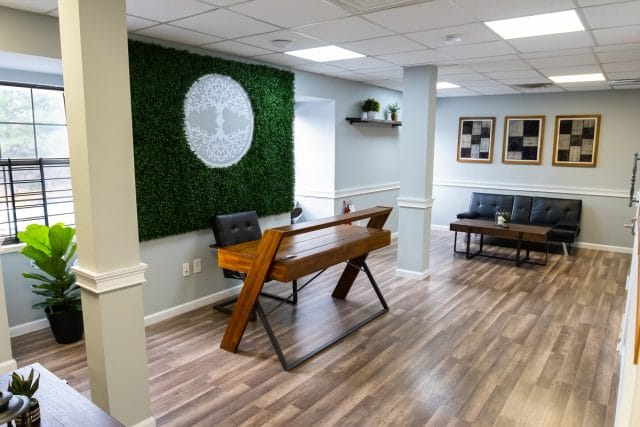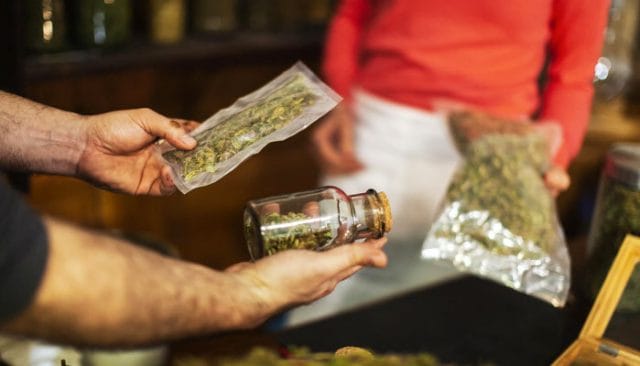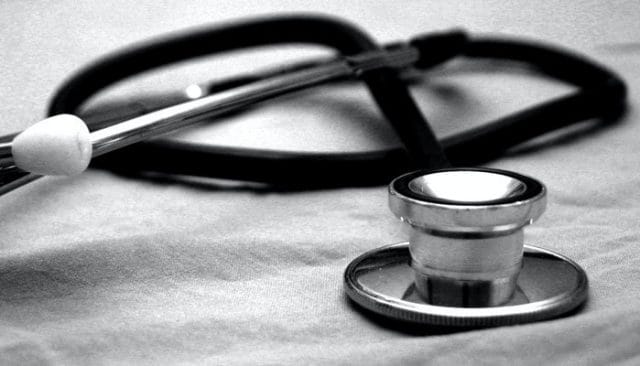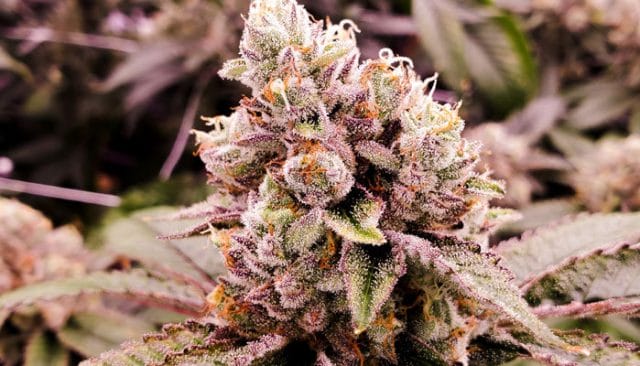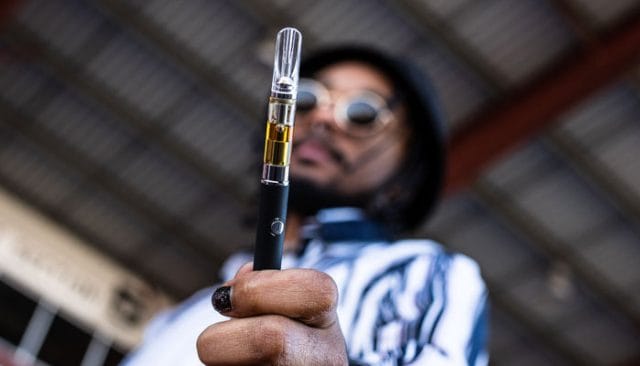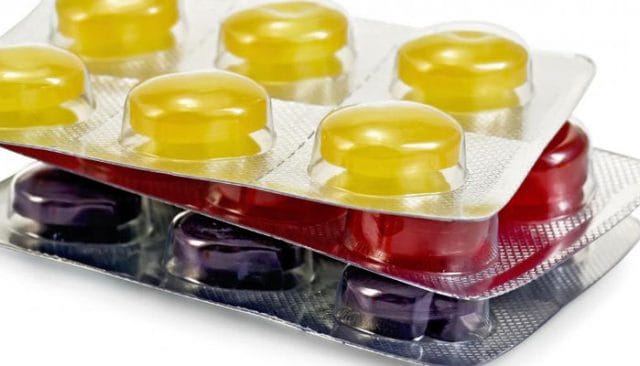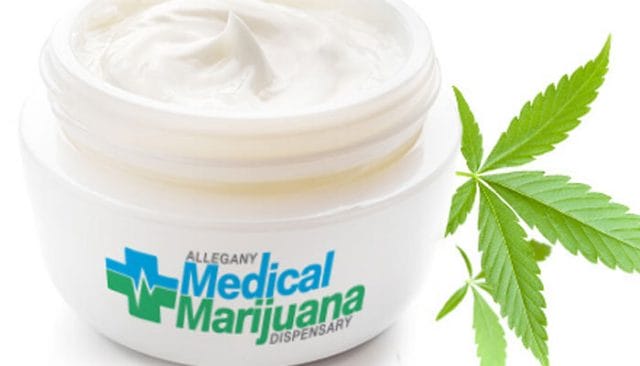Looking for information about how to serve medical marijuana patients in New Jersey? Or perhaps you want to get a medical marijuana card in Jersey.
Medical marijuana patients need to obtain medical marijuana. But it’s equally important that businesses handling legalized medical marijuana in the Garden State understand everything that’s involved.
The state medical marijuana program has nuances that must be followed. And if you plan to consume or distribute medicinal marijuana in New Jersey, you’ll find all of the information you need here and now.
Medical marijuana patients and business owners in New Jersey need to know what to expect in this budding space. In this post, we cover the ins and outs of the New Jersey medical marijuana card, how to get it, and how to serve a New Jersey resident through the state’s medical marijuana program.
Looking to scale your medicinal marijuana business in New Jersey’s cannabis sector? Northstar is here to help.
Contact us now for expert assistance navigating New Jersey’s medicinal cannabis industry with financial services.
New Jersey Medical Marijuana Laws
Compassionate Use Medical Marijuana Act
It wasn’t always possible to obtain a medical marijuana card in New Jersey. The Jersey medical marijuana program came along after the Legislature passed the New Jersey Compassionate Use Medical Marijuana Act (CUMMA), or S 88, in January of 2010.
New Jersey’s Medical Marijuana Program
Governor Jon Corzine signed CUMMA into law on January 18, 2010. However, this law was stalled after Governor Chris Christie took office the following day. It wasn’t until August 9, 2012, when New Jersey’s medical marijuana patient registry opened that registered physicians were allowed to initiate patient certifications with the state’s Medical Marijuana Program (MMP).
S 2842 in 2013
Eventually, more legislation was passed to expand the New Jersey medical marijuana offerings. Through S 2842, New Jersey medical marijuana included edible forms of medical marijuana that can be consumed by patients less than 18 years of age. Governor Christie signed this into law on September 10, 2013.
Jake’s Law
Governor Phil Murphy signed Jake’s Law on June 2, 2019. This law, also known as A 20, was named after Jake Honig, a patient who was using medical cannabis during his battle with cancer. Through this bill, New Jersey medical cannabis laws changed. It added provisions to increase the amount of cannabis allowed, permit home delivery, and expand the accessibility with additional cultivators, retailers, and manufacturers.
The Marijuana Legalization Amendment
Then, on November 3, 2020, New Jersey voters approved the Marijuana Legalization Amendment. This is also known as New Jersey Public Question 1. Through this amendment, the state legalized possession and use of marijuana for adult residents at least 21 years of age.
This same constitutional amendment made the New Jersey state sales tax rate (6.625%) apply to recreational cannabis purchases while allowing local municipalities to impose an additional tax of up to 2%.
The New Jersey Cannabis Regulatory, Enforcement Assistance, & Modernization Act
Months later, on February 22, 2021, Governor Phil Murphy signed the New Jersey Cannabis Regulatory, Enforcement Assistance, and Marketplace Modernization Act. Through this new law, possession of up to 6 ounces of cannabis became legal, as did 17 grams of hashish. It also set the marketplace framework up for cannabis business operators.
A1897 in 2021
Governor Murphy also signed A1897, which lessens the penalties for possession for as much as 6 ounces of cannabis flower and 17 grams of hashish. The governor also signed A5342, which made it so minors would receive written warnings instead of criminal penalties or fines for possession of cannabis products.
Where can medical marijuana patients in New Jersey access medical cannabis?
Medical marijuana can be accessed through New Jersey’s Alternative Treatment Centers (ATCs). The patient must visit a medical marijuana doctor to get a physician’s recommendation before making their purchase.
What taxes do card holders in New Jersey pay?
Each medical marijuana patient must have a state medical marijuana card. They also have to pay 4% in sales taxes, although that’s expected to be gone by July 2022.
Medical marijuana cardholders in New Jersey can be either patients or caregivers. They can buy up to 3 ounces each month. For terminally ill patients and those on hospice, there’s no monthly limit for the amount of medical marijuana they can buy.
What do medical marijuana patients in New Jersey have access to?
After visiting a licensed medical marijuana doctor in New Jersey, the patient is on the Jersey medical marijuana registry. Then, the medical marijuana patient will have access to the following forms of medical marijuana:
- Cannabis Flower
- Cannabis Oil/Concentrate
- Infused Oral Lozenges
- Medical Marijuana Topicals
Where can New Jersey medical marijuana patients consume medical marijuana safely?
New Jersey medical marijuana cardholders can consume medical marijuana at their private residences. However, some dispensaries might offer cannabis consumption areas for patients.
The Smoke-Free Air Act
At this point, patients can smoke medicinal marijuana while adhering to the Smoke-Free Air Act, which allows public consumption in much the same way as tobacco.
Regardless, the fact that medical marijuana establishments are allowed to offer consumption areas is massive for the industry. Medicinal marijuana consumption zones give these operations the chance to appeal to new patients by showing them how to use medical marijuana on-site.
Can New Jersey patients possess medical marijuana?
Yes, a medical patient can possess up to 3 ounces of New Jersey medical marijuana during a 30-day period. If the medical marijuana cardholder is terminally ill or in hospice care, they don’t have a limit.
Keep in mind, if you’re a medical patient or caregiver in New Jersey, you cannot cultivate cannabis plants.
How to Get a Medical Marijuanas Card NJ
How do I get a Jersey medical marijuana card?
First, you’ll need to speak with a doctor registered with New Jersey’s medicinal marijuana program. Jersey patients can only get a medicinal cannabis recommendation from physicians who are registered with the state program.
Once you meet with your physician, you’ll need to ascertain if medicinal marijuana is right for your condition. Terminal illness is usually a quick ‘yes’ for medicinal marijuana. But other conditions will be covered below.
Your medical marijuana evaluation will involve looking over your medical records. But the analysis goes further than your medical history; you’ll need to show that you need medical marijuana products to treat one or more medical conditions.
Here’s a list of the qualifying medical conditions a patient can have to get a medical marijuana card in New Jersey:
- Amyotrophic lateral sclerosis (ALS), or Lou Gehrig’s disease
- Anxiety
- Cachexia, or wasting syndrome
- Cancer
- Chronic pain
- Dysmenorrhea
- Glaucoma
- HIV/AIDS
- Inflammatory bowel disease, including Crohn’s disease
- Intractable skeletal muscular spasticity
- Migraines
- Multiple sclerosis
- Muscular dystrophy
- Nausea and vomiting
- Opioid use disorder
- Post-traumatic stress disorder
- Seizure disorder, including epilepsy
- Terminal cancer or illness, if the physician determines the patient has less than 12 months to live
- Tourette syndrome
Regardless, you’ll need to become a qualified New Jersey medical marijuana patient. This involves visiting a licensed medical marijuana doctor in the state. You’ll need to register and get a valid state-issued identification card from the Department of Health (NJDOH) Medicinal Marijuana Program, as well.
Patient Registration
Next, go to NJ Health’s ‘How to Register’ page. Here’s what you’ll need:
- Your NJ Health medical marijuana reference number (your doctor will provide this)
- Passport-style photo from within the last 60 days
- Government-issued photo ID
- Proof of New Jersey residency (discussed more in-depth below)
- Registration fee of $100. However, some patients may pay a reduced fee of $20
You’ll need to submit the application on the NJ Health website. Patients cannot register in person.
Once NJ Health gets your application, it usually takes weeks to process. Once processed, it may take longer to receive your card by mail.
State-issued medical marijuana registry cards are valid for two years from their issue date. However, patients have to check in with their certifying physician a minimum of one time every 12 months.
Whether you need a medical card to treat post-traumatic stress disorder, epilepsy, chronic pain, a terminal illness, or something else, your medical history can tell your marijuana doctor all about your medical conditions. If there’s nothing on your medical records that shows your need for a medical card, you’ll likely need to get some additional tests.
You’ll also need to prove New Jersey residency. This is easy to do, and it can be done by presenting your driver’s license, motor vehicle registration, or voter registration along with three other forms of proof like income tax returns or proof of 12 months’ employment.
What happens after I get a New Jersey medical card?
Once you visit your New Jersey medical marijuana doctor, you’ll be allowed to legally buy and consume marijuana products as part of your treatment. Your medical cannabis card will tell Alternative Treatment Centers that they’re allowed to sell to you.
But on the other end of the spectrum, what’s involved in operating one of these ATC’s?
Operating a Medical Cannabis Business in New Jersey
The New Jersey Department of Health is responsible for regulating the state’s ATC’s. If you haven’t already received permission from the Jersey Department of Health, it’s unlikely you’ll be able to open an ATC.
Here’s a list of the ATC’s that currently operate under the regulations of the New Jersey Department of Health:
- Apothecarium Dispensary
- Apothecarium Dispensary
- Ascend
- Ascend
- Breakwater ATC
- Columbia Care NJ
- Curaleaf
- Curaleaf
- Curaleaf
- Garden State Dispensary
- Garden State Dispensary
- Garden State Dispensary
- Harmony Dispensary
- RISE
- RISE
- The Botanist
- The Botanist
- The Botanist
- The Cannabist
- Zen Leaf
- Zen Leaf
- Zen Leaf
If you do decide to try opening an ATC in New Jersey, you’ll need to go through the Department of Health, which operates in consultation with the Attorney General’s Office. This entity has developed two screening tools it uses to efficiently and effectively oversee ATCs applying to the Department for permits to grow and dispense medical marijuana in New Jersey.
Through the Compassionate Use of Medicinal Marijuana Act, the Department has the authority to verify the information in all applications to get an ATC permit. It also has the right to ensure effective documentation of each ATC’s operations before issuing the permit. Furthermore, the Department is responsible for overseeing, monitoring, and investigating the activities related to all ATCs interested in operating in New Jersey.
The Department uses the Permitting Request Form and the Personal History Disclosure Form 1 and 2 to review all changes from the original application. It also uses this to collect and consider all relevant information from the ATCs and related entities. This offers guidance as it conducts background checks for all owners, officers, directors, and employees of the ATCs.
Contact the Medicinal Marijuana Program through the New Jersey Health Department to obtain these forms.
Best Practices for Serving Medical Marijuana Card Holders
While it’s difficult to start an ATC, recreational marijuana is now legal in New Jersey. If you haven’t already been approved to operate an ATC, you might be considering operating in the state’s recreational space.
Regardless of whether you distribute medicinal or recreational cannabis, you’re likely to serve medical marijuana cardholders. Military veterans, those who have social security disability benefits, and other people with a debilitating medical condition will still shop at adult-use operations.
Here’s a list of tips to keep in mind as you serve medical marijuana card holders in New Jersey:
Welcome New Jersey Patients
It should go without saying that as a cannabis business operator, you should welcome New Jersey patients with open arms. Besides encouraging patients to shop your assortment of products, you should also have plenty of information about each of your products and how patients can use them to treat their ailments.
Patients who use medical marijuana to treat their conditions need access to services. They will look for information about how cannabis affects the body. Some patients will also want to know how it interacts with other medications they are already taking. You should be ready to answer all of these questions and help patients find the right cannabis products for them.
Understand Debilitating Medical Conditions
Many medical conditions qualify patients for medical marijuana in New Jersey. Here’s a list of the medical conditions you should familiarize yourself with if you plan to serve patients in New Jersey.
ALS
Amyotrophic lateral sclerosis (ALS), or Lou Gehrig’s disease, is a condition where your nerve cells gradually die, limiting your ability to control muscle movement.
Medical cannabis can help with ALS by easing stiffness, spasticity, pain, and cramping.
Anxiety
Anxiety is the feeling of unease, worry, or fear. It’s generally triggered by a specific stimulus such as an event or substance.
Medical marijuana helps with anxiety by stimulating the body’s own endocannabinoid system. In particular, THC found within cannabis provides a calming effect that helps reduce anxiety and stress.
Cachexia/Wasting Syndrome
Cachexia, also known as wasting syndrome, is a condition where you lose weight and muscle mass. It’s often caused by heart disease, HIV, cancer, or other diseases.
Medical marijuana can help with cachexia by stimulating appetite, reducing nausea and vomiting, relieving pain, and improving mood.
Cancer
Cancer is the uncontrolled growth of abnormal cells in your body. These cells form tumors that can invade the tissue around them and spread to other parts of your body.
Medical cannabis can help with cancer by inhibiting angiogenesis, or the formation of new blood vessels, in tumors. It can also reduce nausea and vomiting from chemotherapy treatments.
Chronic Pain
Chronic pain can include neuralgia, arthritis, migraines, and sickle cell disease. It’s a lasting pain that continues after the body’s initial injury has healed.
Medical marijuana can help with chronic pain by reducing inflammation, muscle spasms, and stiffness. It can also increase appetite and reduce weight loss associated with chronic pain.
Dysmenorrhea
Dysmenorrhea is pain and cramping associated with menstruation.
Medical marijuana can help with dysmenorrhea by reducing the muscle tension, inflammation, and nausea that contribute to pain and cramping.
Glaucoma
Glaucoma is a condition where your optic nerve becomes damaged. This damages your sight and can eventually lead to blindness.
Medical cannabis can help with glaucoma by reducing the ocular pressure associated with the condition. This way, it reduces one’s risk of optic nerve damage and eventual blindness.
HIV/AIDS
HIV, or human immunodeficiency virus, attacks the patient’s immune system and weakens it over time. AIDS is a later stage version of this condition where this attack depletes your white blood cells to dangerous levels.
Medical marijuana can help with HIV/AIDS by reducing pain, increasing appetite, reducing nausea and vomiting associated with treatment, and improving mood.
Inflammatory Bowel Disease (IBD)
Inflammatory bowel disease, or IBD, is a condition where your intestines become chronically inflamed. This can happen to your small intestine or large intestine.
Medical cannabis can help with inflammatory bowel disease by reducing inflammation and cramping associated with the condition. It can also stimulate appetite and reduce nausea and vomiting from treatment.
Intractable Skeletal Muscular Spasticity
Intractable skeletal muscular spasticity is a condition where the patient has persistent muscle spasms that are resistant to treatment.
Medical cannabis can help with intractable skeletal muscular spasticity by reducing the number of spasms, improving sleep quality, and increasing patient’s feelings of relaxation.
Migraines
Migraines are severe, recurring headaches associated with nausea, photophobia (sensitivity to light), and phonophobia (sensitivity to sound).
Medical cannabis can help with migraines by reducing the number of headaches a patient gets. It’s also known to reduce nausea and vomiting associated with migraine treatment.
Multiple Sclerosis
Multiple sclerosis is a condition where the patient’s immune system attacks the myelin sheath that protects nerve cells. This can eventually lead to muscle weakness and tremors in the patient.
Medical cannabis can help with multiple sclerosis by reducing inflammation, pain, spasms, and drooling associated with the condition. It may also provide relief from depression associated with multiple sclerosis.
Muscular Dystrophy
Muscular dystrophy is a condition where the patient’s muscles become weakened and eventually stop working properly.
Medical cannabis can help with muscular dystrophy by reducing muscle spasms and muscle twitches associated with the disease. It may also improve appetite and reduce weight loss in patients with muscular dystrophy.
Nausea & Vomiting
Nausea is a feeling of unease and discomfort in the stomach that can lead to vomiting. It’s an undesirable side effect of some medications, as well as some diseases.
Medical cannabis can help with nausea and vomiting by improving appetite, reducing gastric pain associated with the conditions, relieving anxiety associated with being sick, and reducing stress caused by pain.
Opioid Use Disorder
Opioid use disorder is when a patient overuses opioid drugs. These drugs have an addictive tendency, which can have a negative impact on the patient’s life and those around them.
Medical cannabis can help with opioid use disorder by reducing withdrawal symptoms, cravings, and the desire to continue using opioids. It’s also known to reduce the pain that opioids are used to treat.
Post-Traumatic Stress Disorder (PTSD)
PTSD is a chronic condition where the patient’s memories of traumatic events can come back to haunt them. It often results in hallucinations, flashbacks, trouble sleeping, and severe anxiety.
Medical marijuana can help with PTSD by reducing stress associated with the disorder, lowering anxiety, and improving sleep quality for patients struggling with PTSD.
Seizure Disorder, Including Epilepsy
Seizure disorder, including epilepsy, is a condition where the patient suffers from recurrent seizures. These seizures can impact physical and mental health in a variety of ways.
Medical marijuana can help with seizure disorder by reducing the severity and duration of seizures for patients struggling with this chronic illness. It’s also known to reduce anxiety associated with living with a chronic illness.
Terminal Cancer or Illnesses
Terminal illnesses are diseases where the patient isn’t expected to live for more than 2 years. Glaucoma, one of the qualifying conditions to obtain medical marijuana in New Jersey, is an example of a terminal illness that is often treated with medical marijuana.
Medical marijuana can help with terminal cancer or illnesses by improving appetite and relieving pain associated with diseases like cancer.
Tourette Syndrome
Tourette’s syndrome and tics are neurological symptoms where the patient makes involuntary sounds or movements. The severity varies from patient to patient.
Medical marijuana can help with Tourette syndrome by reducing tics, relieving stress associated with the condition, and improving sleep quality for patients struggling with this chronic illness.
Offer Flower Cannabis & More to Help New Jersey Patients
It’s common knowledge that smoking flower cannabis is not recommended for patients with certain conditions. Many people who don’t know this also think that medical marijuana is only available in flower form, which isn’t the case.
Patients can find cannabis-infused products like oils, vapes, and edibles at dispensaries around New Jersey. These products are often used to treat qualifying conditions that require different forms of cannabis.
New Jersey has made it very clear that patients should have access to medical marijuana in several forms. Here’s what you should familiarize yourself with to give New Jersey patients the best products for treatment:
Cannabis Flower
Cannabis flower might seem basic, but it’s anything but. In New Jersey, many strains are available, and it’s up to you to know which ones will work best for which treatment.
Sativa-dominant strains are great for those who need to increase their appetite because it stimulates the brain and tricks the body into thinking that it’s hungry. Indica-dominant strains are perfect for those who struggle with insomnia.
Cannabis Oil/Concentrate
Extracts such as oil, wax, rosin, shatter, and others come from cannabis flower and represent a potent form of medical marijuana. These extracts are often consumed on their own or used as a substitute for flower.
Cannabis vape cartridges contain oil that’s extracted from cannabis and mixed with a carrier liquid to be inhaled into a vaporizer pen. After the patient inhales, they can instantly feel the effects of medical marijuana without having to smoke flower or wait for edibles to kick in.
Infused Oral Lozenges
Infused oral lozenges are an edible form of medical marijuana. These lozenges come in different flavors and can be used to treat a number of qualifying conditions. The lozenges are much like cough drops and dissolve slowly in the patient’s mouth.
Medical Marijuana Topicals
Medical marijuana topicals are used to alleviate pain in a specific area of the body. They come in forms like lotions, transdermal patches, and even bath soaks.
These topicals are effective ways for patients with chronic pain conditions to get needed relief without having to resort to opioids or other pharmaceuticals that could be addicting or dangerous to mix with other medications.
Offer Deals & Discounts to Patients
Offering deals and discounts to patients is an excellent way to show them that you care. It can also help encourage them to try new products and make purchases they might not have considered before.
If you offer deals and discounts, be sure that all patients qualify for the same promotion. It’s wrong to advertise that one patient has access to a deal while others don’t, and patients will appreciate the extra assistance.
Patients really like it when dispensaries offer special promotions and sales on medical marijuana products, so make sure you mention this in your marketing and advertising.
Offer Discounts for Veterans
Military and law enforcement veterans in New Jersey are also medical marijuana patients. The state’s MMJ program allows patients to register as a veteran and receive a reduced price on their purchases.
Make sure that your dispensary offers the same discounts to all veterans, whether they’re patients or not. You can even offer extra specials for military vets stationed in New Jersey’s various veterans homes.
Servicing Medical Marijuanas Card Holders in New Jersey
Looking to scale your operation in New Jersey? Northstar is here to help!
The right financial services will enhance your operations and prepare you for growth. Contact us now to expand your Garden State cannabis business in this budding space now.
Love this article? Here are a few other NJ medical marijuana posts you might also enjoy!
